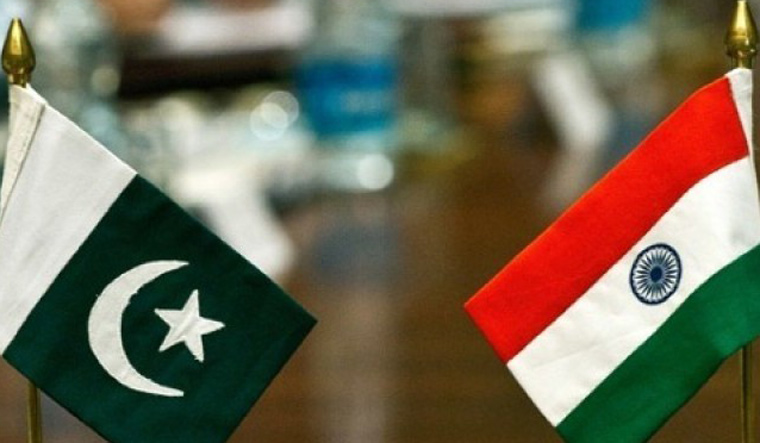The United States has said it continues to place Pakistan among “Counties of Particular Concern” (CPC) for violations of its peoples’ religious freedom because “a lot of their actions are done by the government.”
“Half of the world’s people that are locked up for apostasy or blasphemy” were in Pakistani jails. This was another factor taken into consideration while designating Pakistan, Samuel Brownback, the US’ Ambassador-at-Large for International Religious Freedom, has said.
He has also said that Pakistan was also “one of the source countries for forced brides, mostly from religious minorities, being sent to China.”
Reporting his press conference in Washington, Dawn newspaper (December 10, 2020) further quoted what it called Brownback’s ‘claim’ : “Christians and Hindu women (are) being marketed as concubines or forced brides into China because there’s not effective support, and then there’s discrimination against the religious minorities that make them more vulnerable.”
A red-faced, but unapologetic, Pakistan is now left with a “consolation prize” or a reprieve from the departing Trump administration. Secretary of State Mike Pompeo has issued presidential waiver exempting Pakistan and some other counties from being subjected to sanctions that follow such a designation.
“For Pakistan, Nigeria, Saudi Arabia, Tajikistan, and Turkmenistan, the Secretary issued a waiver for the presidential action requirement, determining that there were important national interests of the United States requiring the exercise of the waiver authority,” Brownback announced.
The US envoy rejected Pakistan’s plea, raised through a question by a Pakistani correspondent, to include India as well. Ambassador Brownback said the designations followed “an extensive review of the situation in both India and Pakistan.
“We’ve reviewed extensively the situation in Pakistan and India, and I’ve visited both countries in this role. I’ve visited both countries … and we note the problems that are taking place in our annual report in both Pakistan and India.”

While India has never been designated despite Islamabad’s propaganda, this is the second year (2019-2020) in a row that Pakistan is designated CPC for curbing religious freedom of its citizens. It had been designated in 2018-19 as well as a “country of particular concern” for engaging in or tolerating “systematic, ongoing, [and] egregious” religious freedom violations. Before that, Pakistan had been on a less serious “watch list.” This designation had come precisely a year earlier, on December 10, 2019. So, it is a long record.
Five months later, Michael Kugelman, deputy director of the Asia Program and senior associate for South Asia at the Woodrow Wilson International Center for Scholars in Washington, called it “a reputational blow for Islamabad.”
In Dawn (May 21, 2019) Kugelman attributed the US decision to “pressure tactics” by the Tump administration to get Pakistan to lean on the AfghanTaliban leadership that it has been sheltering to cooperate on a resolution of the Afghan imbroglio that would enable the US to withdraw its troops.
He also reasoned the American action being out of concern for the Christian minority in Pakistan. “… we can read Washington’s move in part as a genuine effort to hold the country more accountable for its very real and very serious religious freedom violations — and particularly those that affect Christians, a very personal matter for several key US policymakers.”
The larger issue, however, is a serious lack of credibility about Pakistan in the world community. With a long record of curbing minorities, including minority Muslim groups, it has a lot to explain, but remains in denial.
A nation that complains of Islamophobia around the world has had no answer to the curbs on and killing by majority Sunnis of Shias, Hazaras, Ahmedis, besides Hindus and Christians. For that matter, why Sunnis engage in competitive strife as happens between members of the Barelvi and the Deobandi schools of Islam.
Similar is Pakistan’s role in fomenting militancy and terrorism in the region, using domestic and foreign militants as ‘assets’. It calls them “non-state actors” but has nurtured and exported them. Besides fighting in the Islamic State (IS) ranks in Syria and Iraq, the latest instance is that of these mercenary fighters involved in Armenia versus Azherbijan. None of these have remained secret, despite denials by Pakistani Foreign Office.
Pakistan’s credibility crisis worsened after Al Qaida leader Osama bin Laden, whom its military ruler Pervez Musharraf once pronounced ‘dead’, was located and eliminated in Abbottabad in 2011.
In the latest plea before its Supreme Court, the Pakistan Government is arguing that the 2002 killing of Wall Street Journal reporter Daniel Pearl was “connected to international terrorism.” It is defending the reduced sentence of Sheikh Mohammed and others who have been convicted and sentenced to be hanged.
Pakistan has conjured up a narrative that it is a ‘victim’ of terrorism and has lost 83,000 of its citizens to it.
However, writing in Dawn (December 1, 2020), British journalist Owen Bennett-Jones says: “The claims that, in fact, Pakistan does not support militants have faced a couple of problems. First everyone now realises that the much proclaimed arrests of militant leaders are invariably followed by their quietly being released. And then, from time to time, people such as Gen Musharraf, let the cat of the bag by saying Pakistan does support some militant groups.”
When its own media and its friendly foreign writers say these things, it is difficult to add or comment on Pakistan’s record, either on its religious minorities or on terrorism.
By Amitabh Dixit, a Freelance Journalist and Conference Producer, APAC and Middle East region, based in Kuala lumpur, Malaysia
